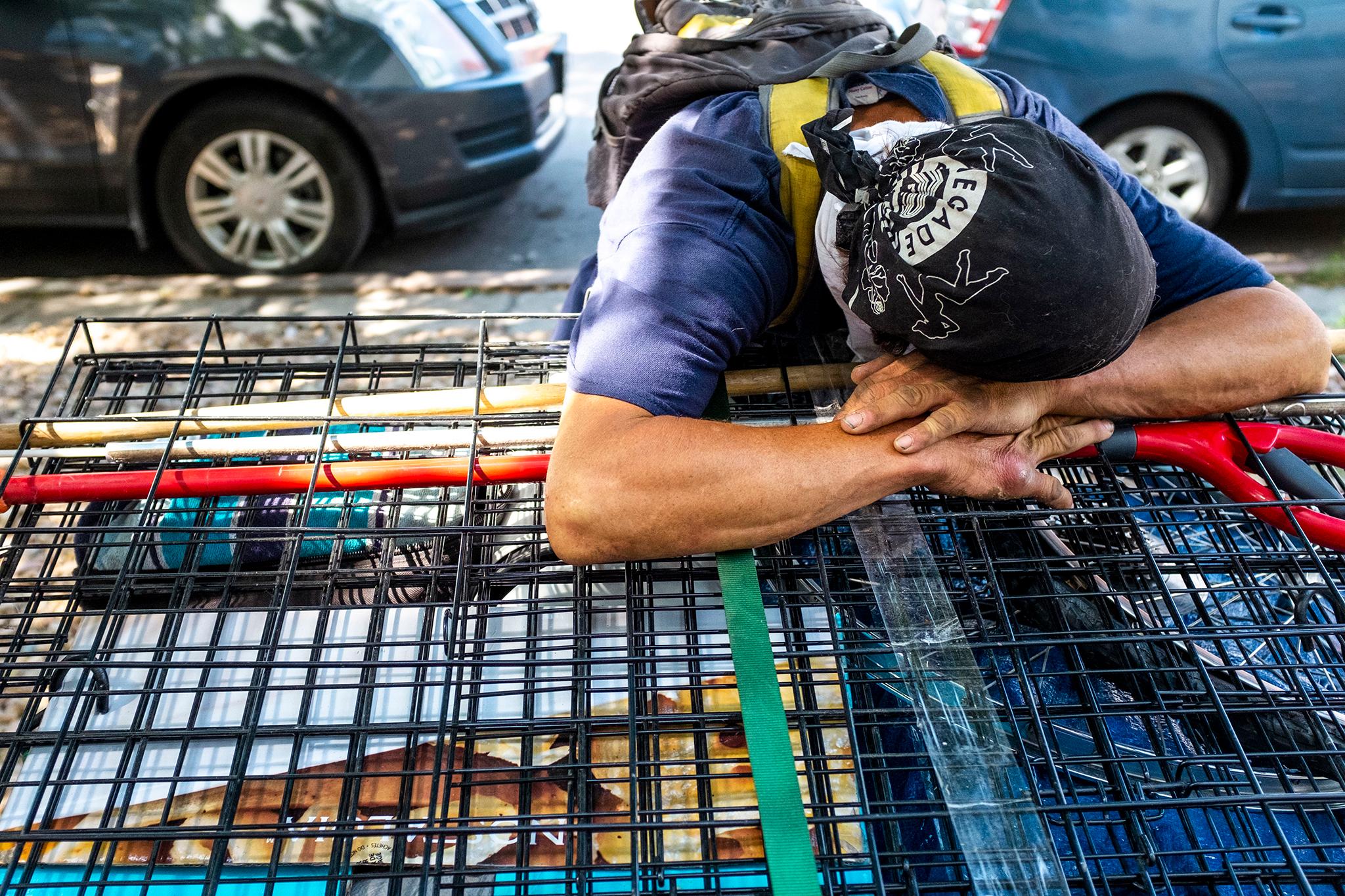"I never wanted to come to a school," Patrick Wilcox said as he synched up his flatbed wagon Tuesday. It contained nearly everything he owned, and he was preparing to push it somewhere north. He wasn't sure where he'd end up sleeping.
Everyone camping around Morey Middle School knew their relative stability was coming to an end. As the school year crept closer, so did a day when police officers would show up and order them to leave. Wilcox was among those who moved before the cops and garbage trucks arrived.
A school may not have been his first choice for a campground, but it's where many others had gathered. He wasn't about to camp somewhere by himself.
"It is important for people to be together," he said. "You have to watch your ass out here."
Tent cities in Denver have grown immensely since the pandemic began, prompting mass cleanups and controversy. The Morey camp's growth over several months sparked organized opposition from angry neighbors, while the activist uprising that began with George Floyd's killing in Minneapolis stoked protests against the cleanups. But people living on Denver's streets have dealt with so-called "sweeps" for years. The constant displacement has made it difficult for many to work toward a different future, and for service providers to deliver consistent support.
Sweeps may promote a "religion of indifference" that consumes the city's unhoused.
Wilcox, who was born and raised in Denver, has dealt with homelessness before, but his most recent stint on the streets has lasted almost four months. Before the pandemic, he was washing dishes and delivering Jimmy John's sandwiches to rent a couch for $500 a month. He said work evaporated as COVID-19 lockdowns set in, and the owner of that couch told Wilcox to go when he couldn't pay his share.
Doing anything to get back on his feet takes a lot of effort. Job applications must usually be accessed online. The library is closed -- though laptops are available for limited use outside -- and his phone is often running on fumes. Finding a free outlet can be a risk.
"You have to break the law just to be able to apply for a job," he said. "You're forced into a life of crime."
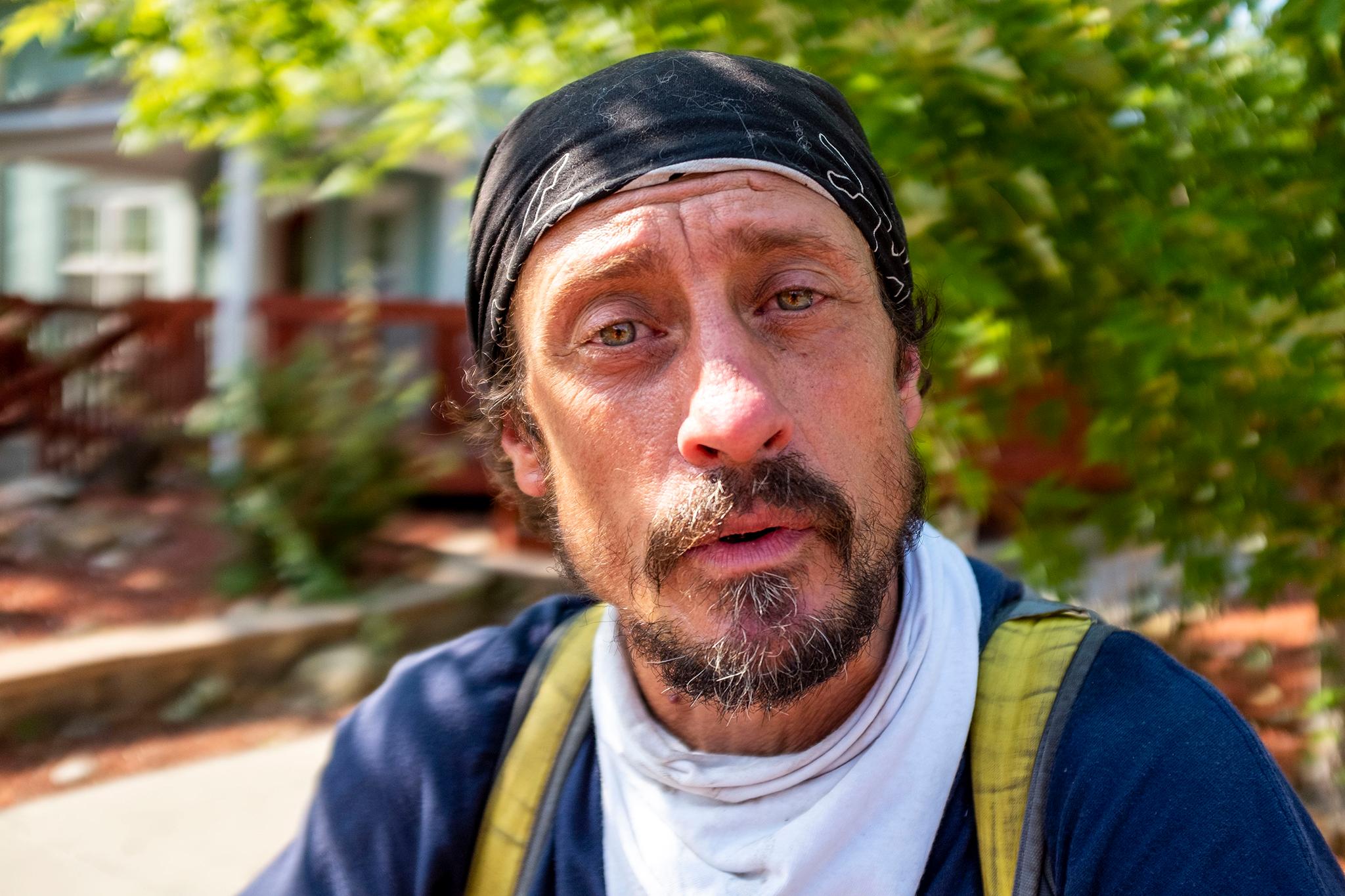
If he gets an interview, he'll have to figure out how to shower and get his clothes cleaned. Failing to accomplish these two tasks "will do the most to keep me out of society," he said.
Dealing with depression that often accompanies homelessness is an existential threat to any of that progress. It's something that pervades encampments, what Wilcox called "a religion of indifference" that can spread like a virus. He tries to make time to play basketball when he can, which helps him feel grounded, but he said other campers around him have already given themselves completely to that infectious despair.
Regular displacement and lack of stability, he said, feeds their indifference.
"It's a huge disruption, the final psychic blow and they begin to feel like: 'I'm not a part of society any more,'" Wilcox said. "The last thing that happens is the loss of all your possessions. That's when you lose your identity."
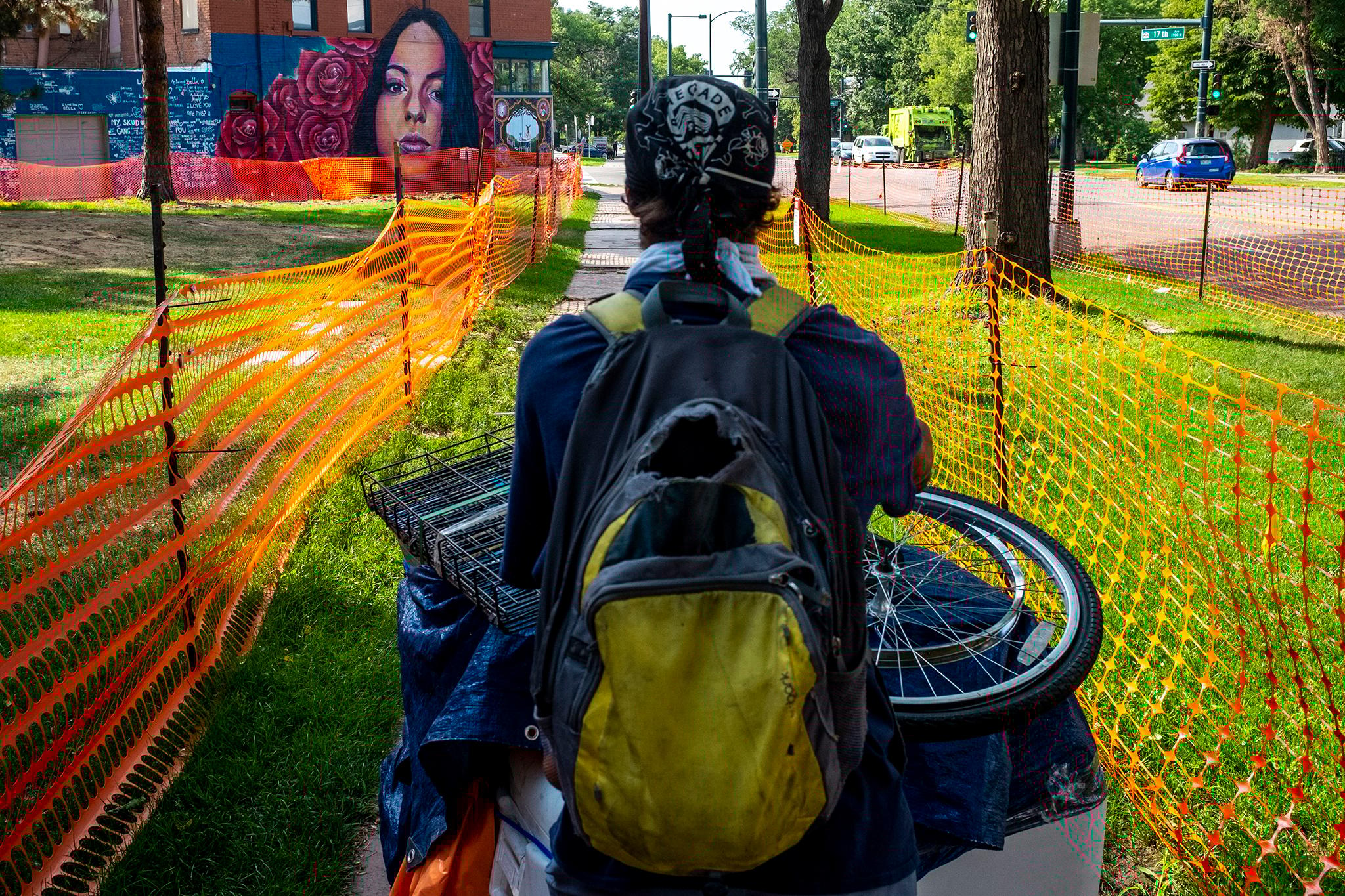
The city offers to store personal items for 30 days during cleanups, but most people decide to pack up what they can and throw the rest away.
That's what Wilcox did, and it became clear how important safeguarding his small pile of possessions was when he reached a new potential campsite a half mile from Morey. When he finished shoving the heavy cart onto a triangle of grass on Park Avenue, he slipped out of his measured speaking voice into a harried scream.
"Attention everyone in this area," he yelled at the sky, tears beginning to form in his eyes. "You come after my stuff and I'm coming after you."
He returned to calm a few minutes later, then left his pallet of belongings unattended on the patch of grass. He had a few more items to grab at Morey, so he had to risk leaving his stuff alone.
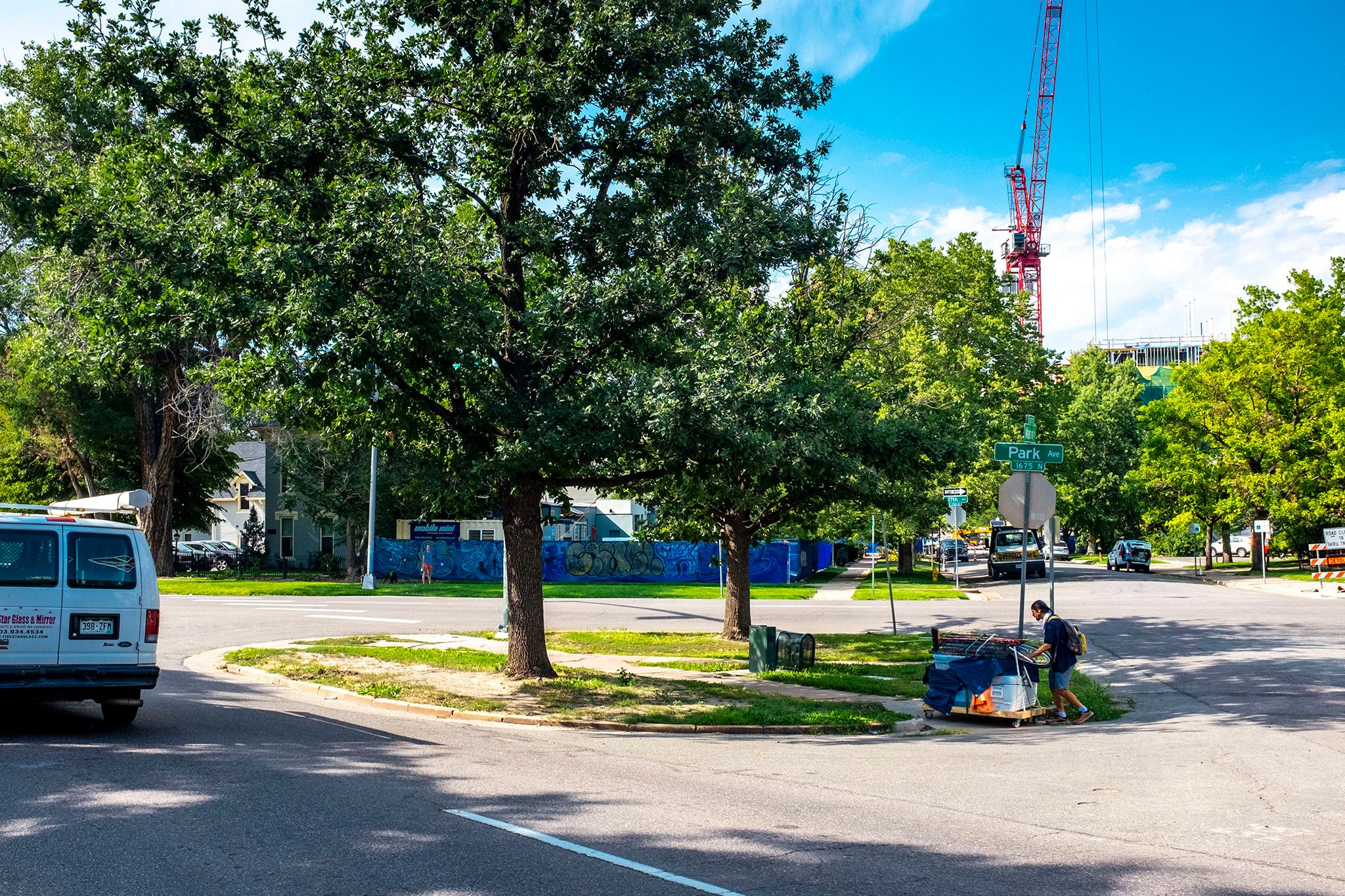
Chris Richardson is a case worker with the Mental Health Center of Denver who is often out trying to talk with people like Wilcox at sites like Morey before and during enforcement actions.
He's seen a lot of people drift away from hope as they become used to a cycle of displacement.
"Sweeps like this further compound the trauma individuals experiencing homelessness already deal with on a daily basis. The act of gathering belongings, seeking alternative 'safer' areas, loss of personal possessions, and the tensions during sweeps can be impactful to an individual's overall wellbeing," he said. "Over time, these individuals appear defeated and numb, usually saying, 'This is just how we live.' A sense of hopelessness can manifest with very little belief that things will get better."
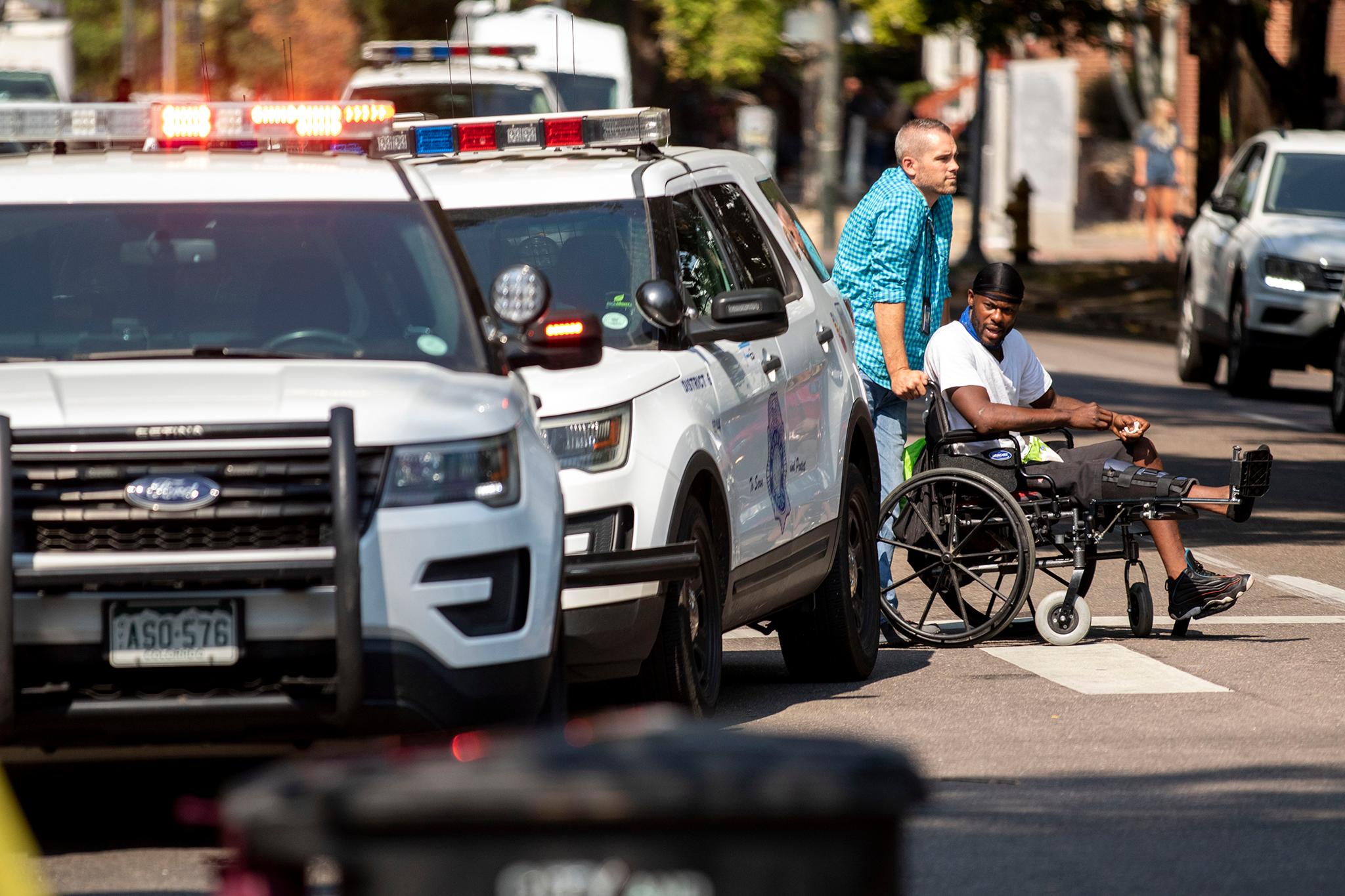
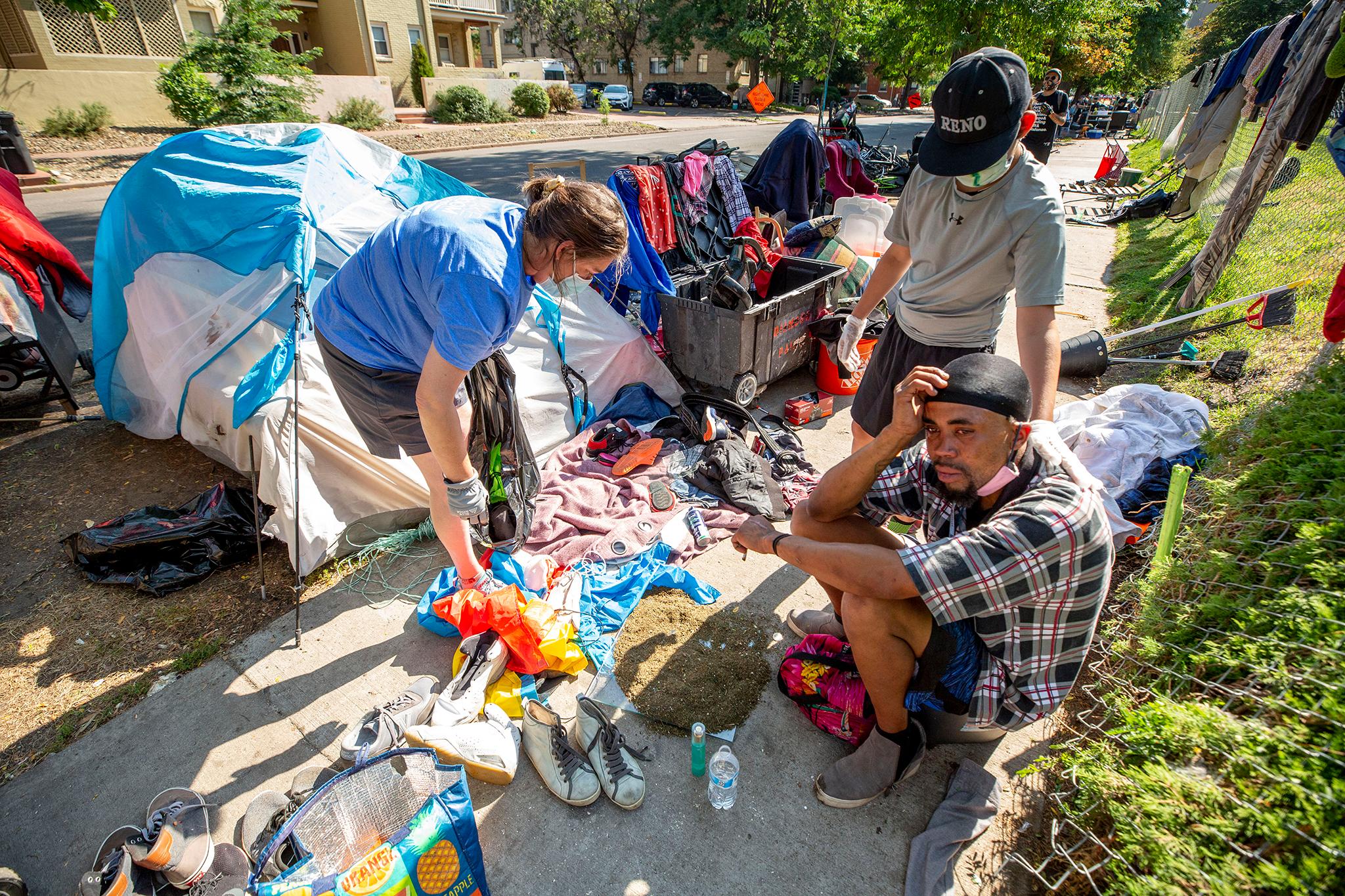
Felisha Taylor, who goes by Echo and was swept from her campsite at Morey this week, said this hopelessness encourages conflict between people experiencing homelessness. Things become more difficult as people are forced to move along. As people lose belongings along the way, they may begin to steal from each other.
"It's like a reset every time, and then worse," she said. "It inspires childish behavior, because we're pissed. We're not going to take it out on anybody else but each other, because we're family."
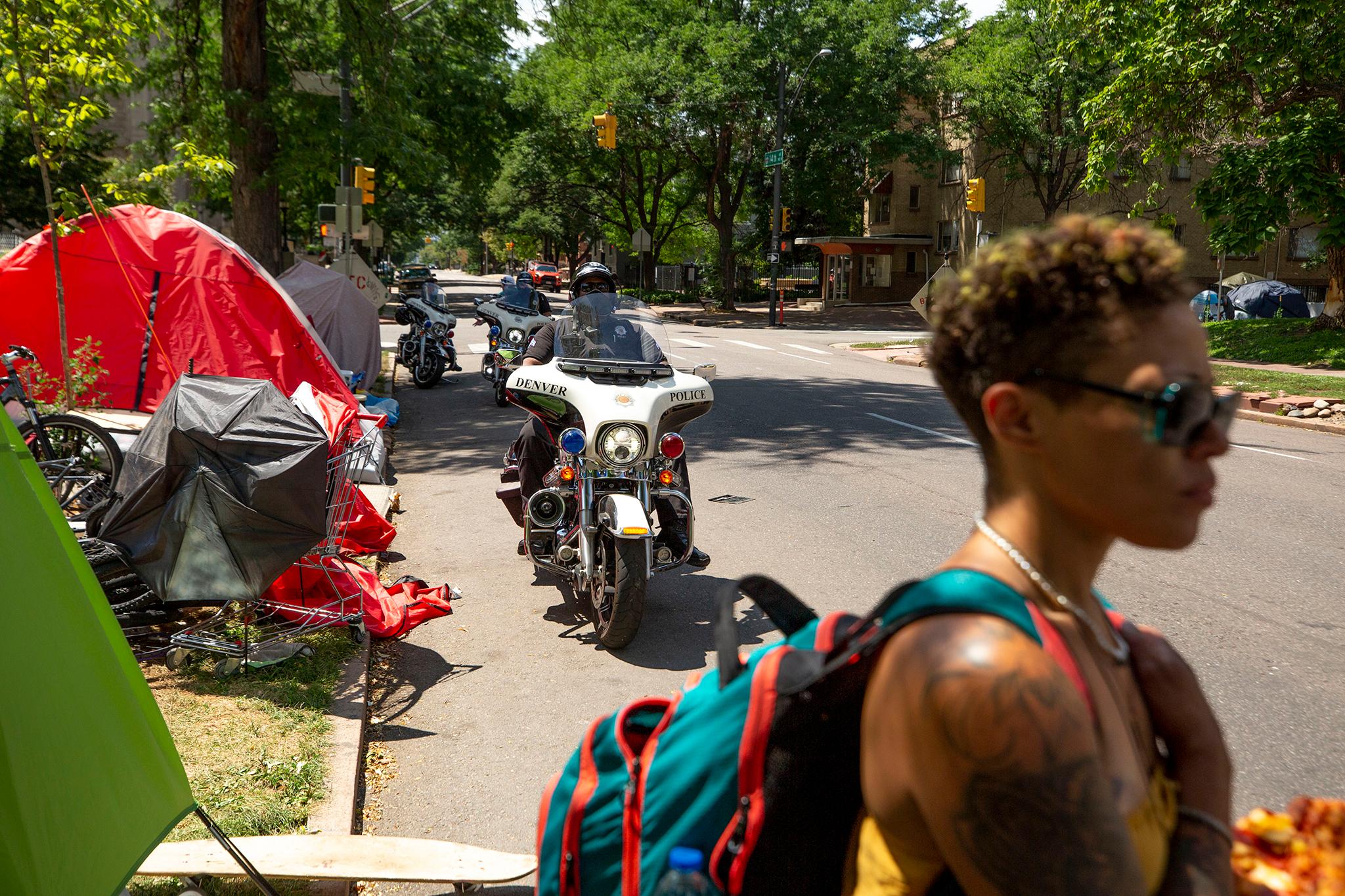
Taylor grew up in Capitol Hill and has lived outside for a little more than a year. She was camping at Lincoln Park before a large tent city took over the grass for a few months. She remembers State Troopers waking her up early every morning, forcing her to pack up and move across the street to Civic Center, where she could remain until dark, then crossing Broadway again each night to sleep again.
"We pack up and go back every day. Every day," she said. "The police contact started to wear. Even if we're not doing anything, we're being told. We're grown. Yeah we're in a situation, but we're still being told. We're still being belittled. There's people that drive by and they honk. They say some messed up stuff. That's all traumatizing."
Displacement can also make it difficult for service providers to help people connect with resources for the long term.
Richardson, the outreach worker, told Denverite that it can be hard to follow up with people once they're dispersed from a campsite.
"A client that moves often is difficult to find and engage with," he said. "It does impact the back-end service providers' ability to continually reconnect with that individual and engage in long term supportive treatment growth."
Just finding someone once they've moved to a new block can be a challenge, but he said disruptions can also cause campers to feel "system fatigue" if they begin to feel they're constantly starting over with case workers.
And even if he can establish a long-term connection with someone on the street, there's not always ideal solutions to funnel people toward.
"People want housing," Richardson said on a visit to Morey a week before the sweep. "It's the one thing I can't offer."
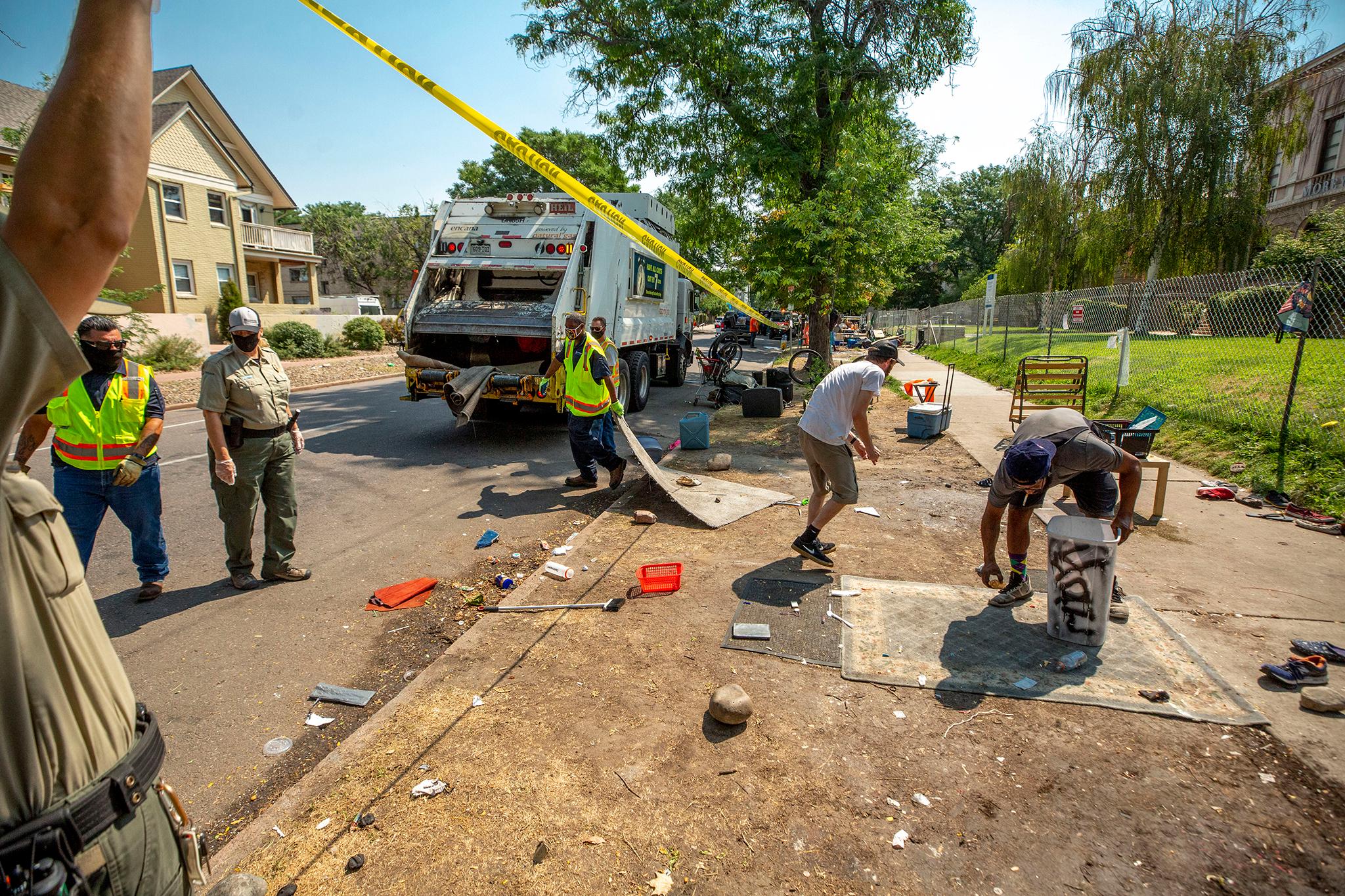
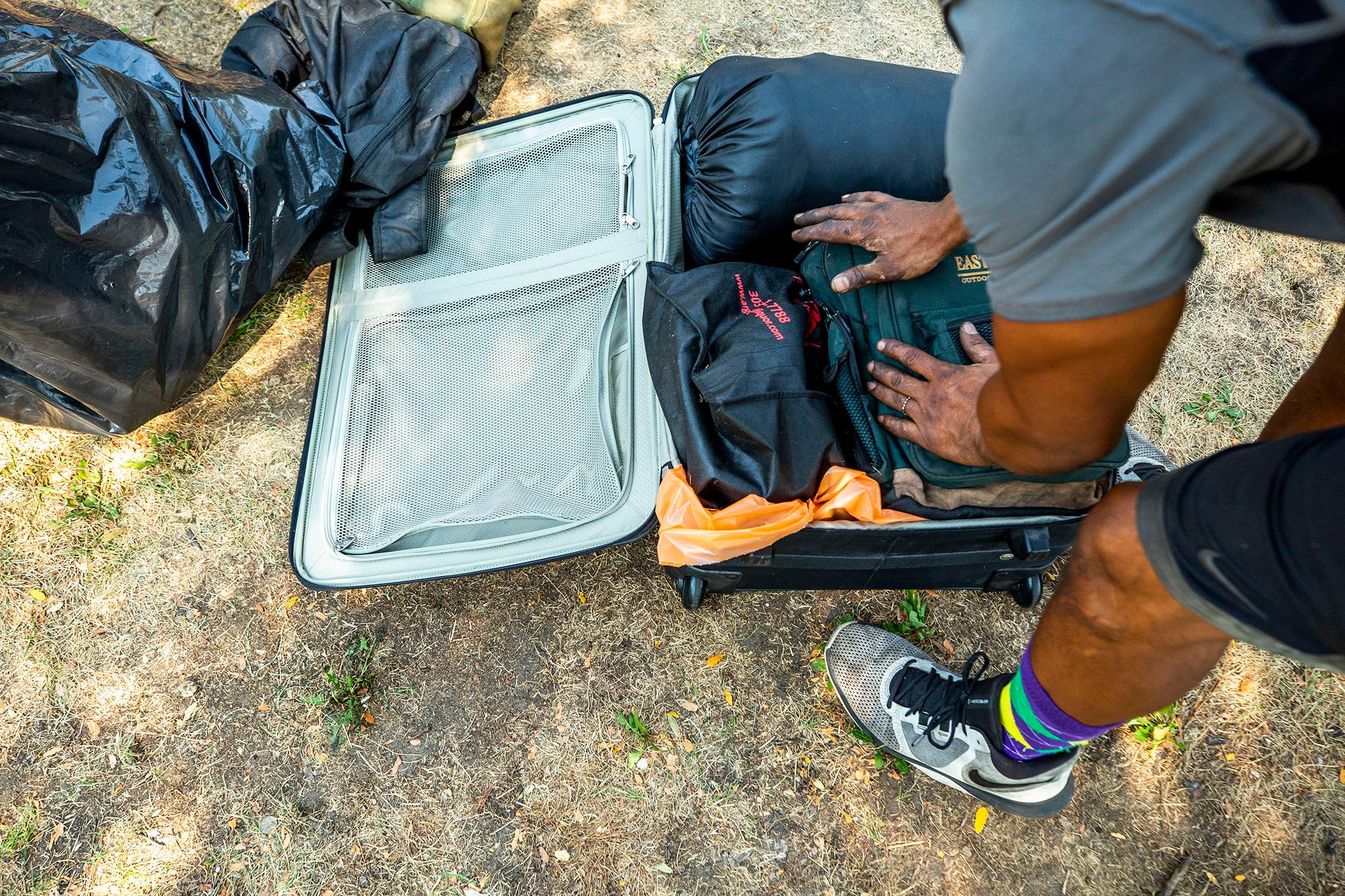
He said some good options have opened in recent years, like the Sanderson Apartments, which is operated by the Mental Health Center of Denver on Federal Boulevard, and Fusion Studios, a housing project run by the Colorado Coalition for the Homeless in a renovated Quality Inn and Suites on Quebec Street. Still, he'd like to see more.
"There needs to be housing options that match need of each unique community member," he said. "Housing that is blind to past criminal history, supportive and understanding of substance use, trauma informed and able to work with those with severe and persistent mental illness."
As sweeps continue, he said, more opportunities to offer permanent, supportive homes must be part of the process.
Taylor said she'd like to find a way into housing, but accessing the internet to look for options has been difficult. And there are some who aren't sure they're ready for it.
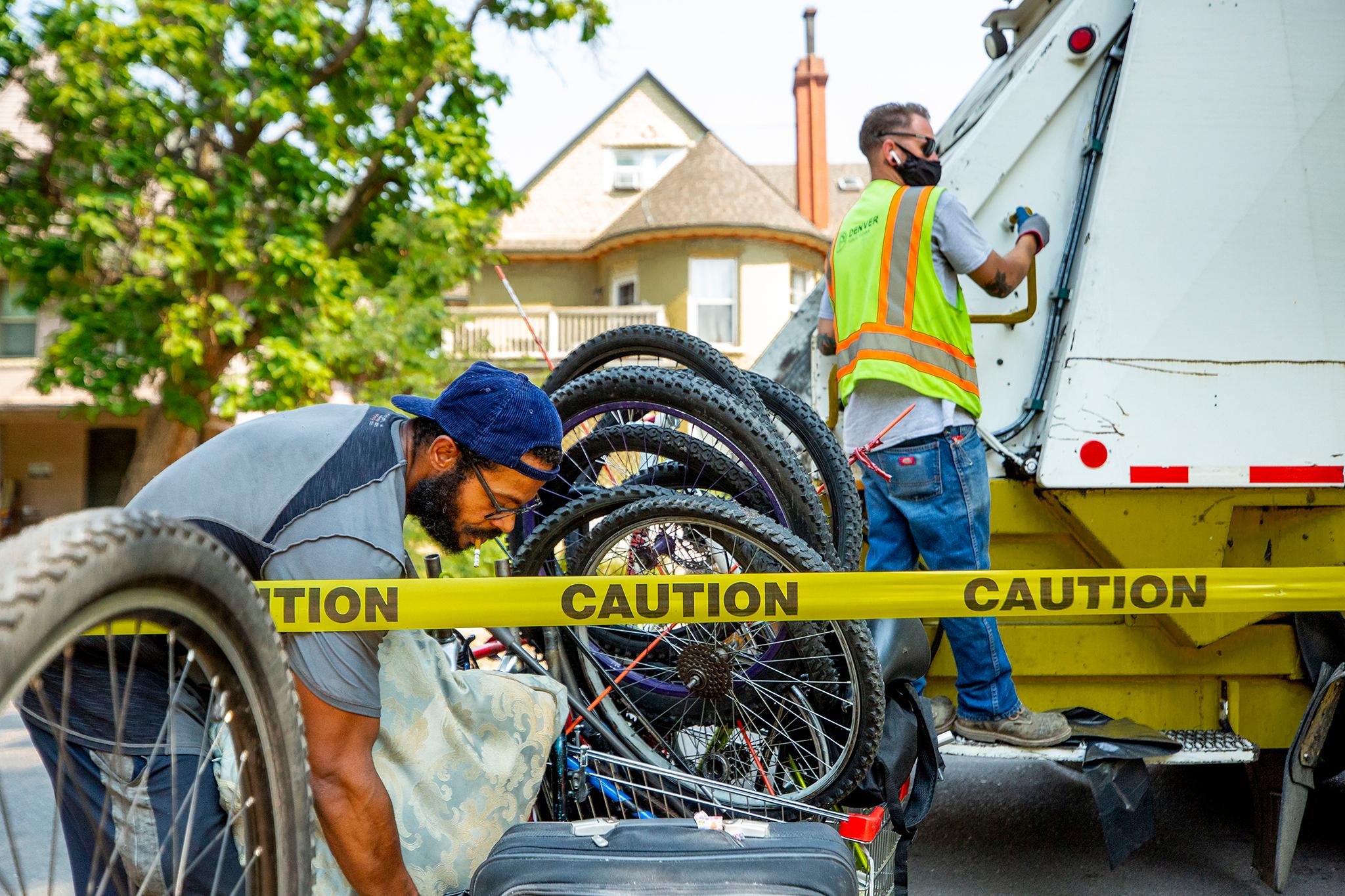
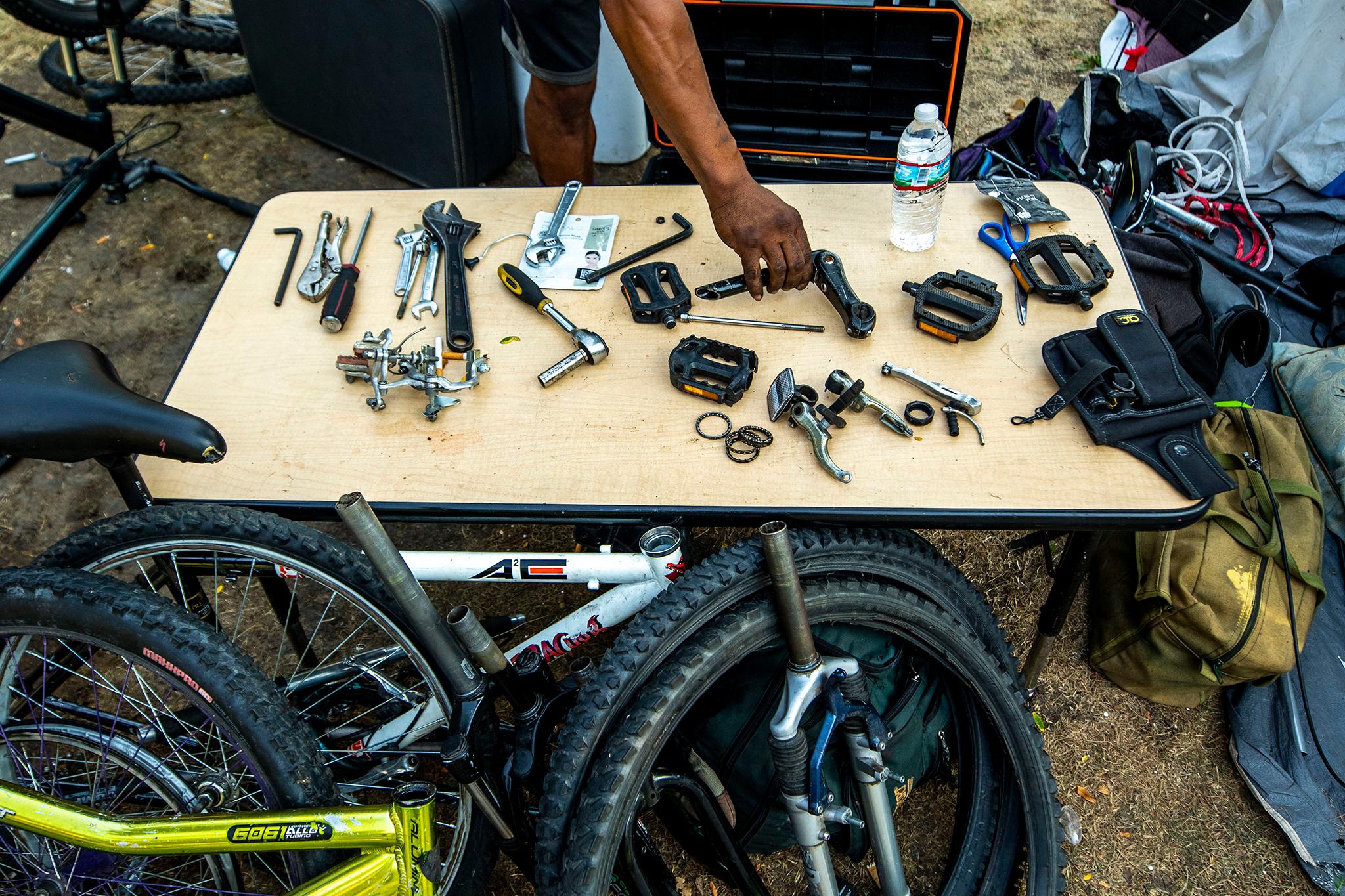
Marcio Johnson is a father of three and a former semi-pro football player. He was once married and lived in a home, "doing the yard every weekend and barbecuing" before a disillusionment with the world got the better of him. He began living on the street about three years ago after he returned home to Denver, where long-strained relationships with his family hadn't improved. He spent his first two years sleeping outside without a tent.
"I just didn't feel safe," he said.
While he said it would take some "transitioning" to feel safe indoors, he said he and others living outside would benefit from any stability outside. They might be able to ground and, eventually, reroute themselves.
"People just really need a moment to get themselves together. Because sometimes, when you get out here, you don't really know what to do," he said as he packed up his belongings Wednesday morning. "Just having that little bit of structure or that time will allow you to get to work, make some money, be able to move to someplace different, establish something different for yourself. When you're constantly shifted around, shifted around, shifted around, it never really allows you to get a plan going."
Denver is working toward sanctioned campsites, although where that may be allowed is still under debate. Activists for homeless rights, like Terese Howard of Denver Homeless Out Loud, say they're skeptical the city could ever offer enough capacity to accommodate everyone living on the street.
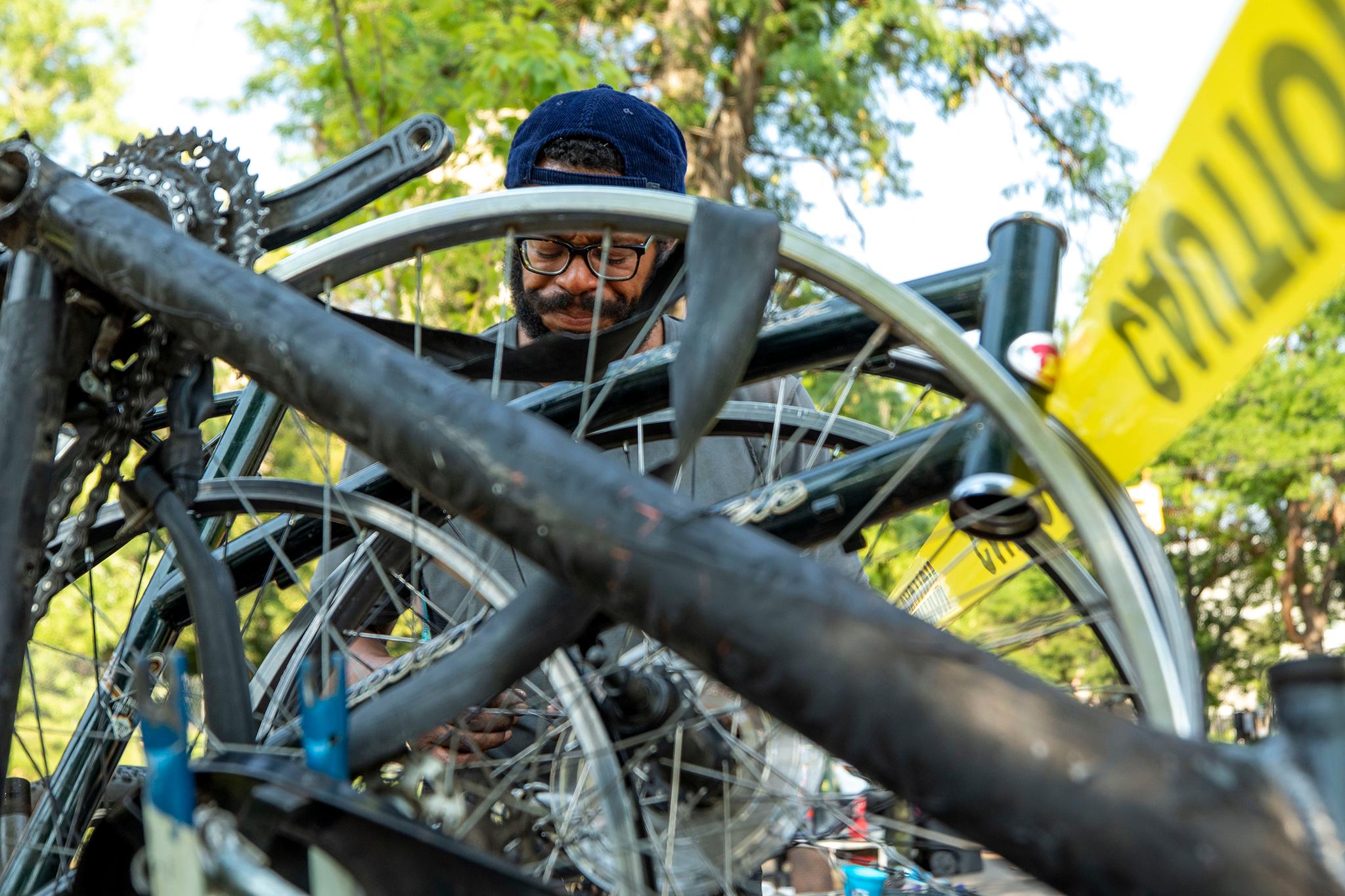
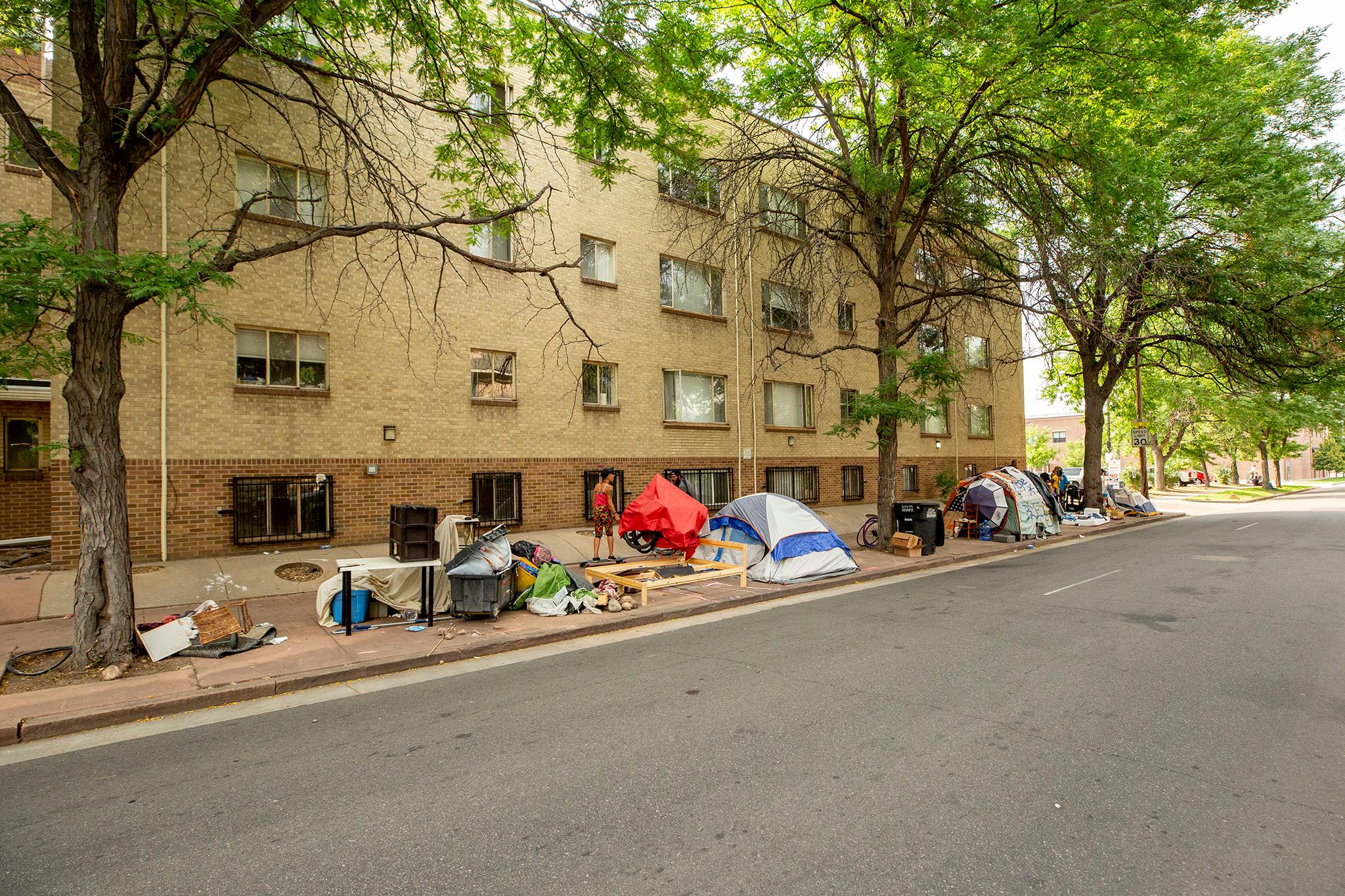
On Wednesday night, after the sweep was complete, Johnson and Taylor had both relocated to a new spot, on a block just across the intersection of 14th Avenue and Washington Street from the middle school lawn where they woke up that morning.

